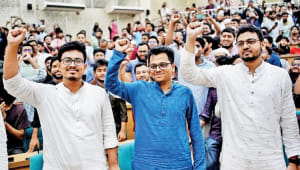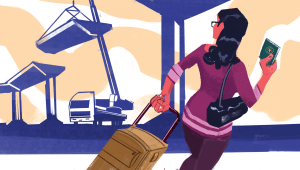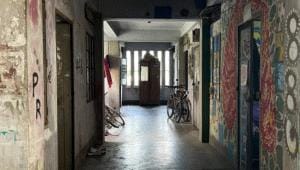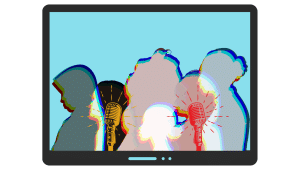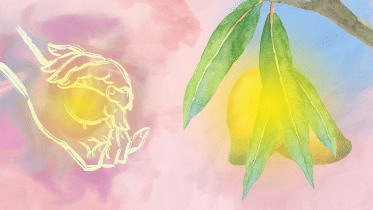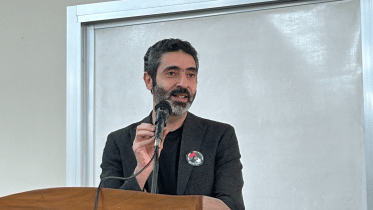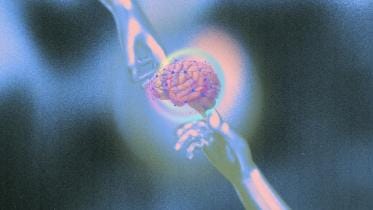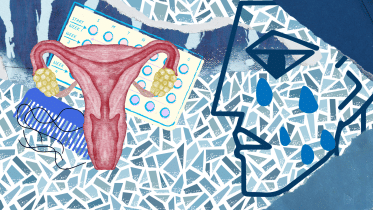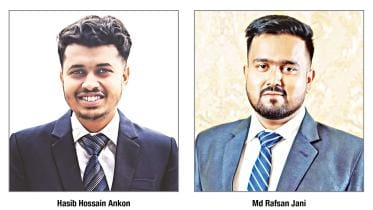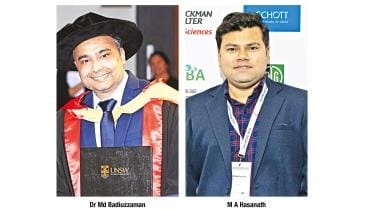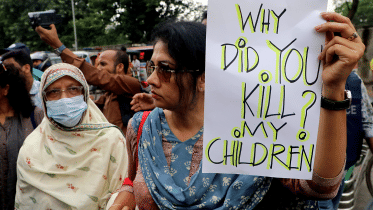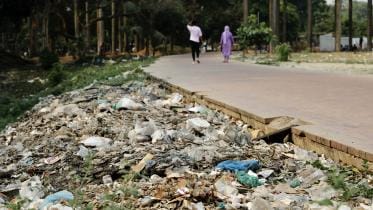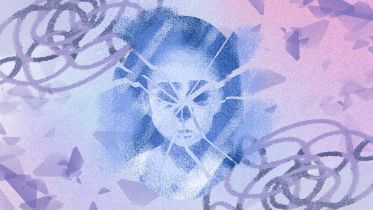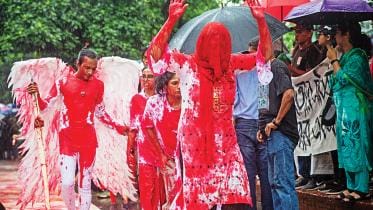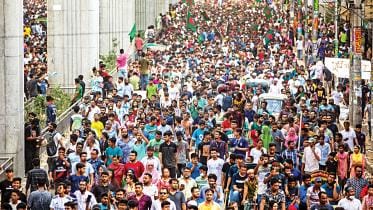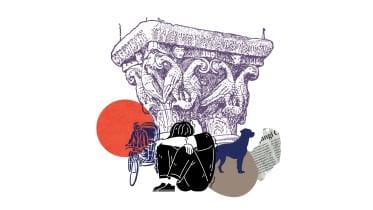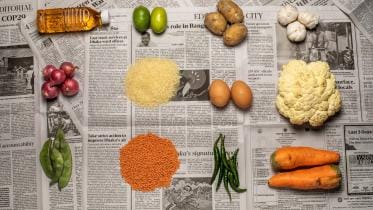Of September
Azra Humayra is a sub-editor at Rising Stars.
21 October 2025, 10:47 AM
Veteran journalist Montaser Marai's inspiring words on journalism and Palestine
My supervisor, fully aware of my incurable weakness for a good talk, suggested I listen to Montaser Marai, a Palestinian-Jordanian journalist and documentary filmmaker.
10 October 2025, 06:00 AM
Reflections on AI as a student
I understand that we need to adapt to new technologies, but as a student, it is depressing to see students compromise on their intellect because AI is an easy way out.
9 October 2025, 04:00 AM
Menstrual pain management and the lack of targeted therapy in Bangladesh
The management of menstrual pain in Bangladesh is hindered by a lack of targeted therapy and knowledge. The prevalent use of a one-size-fits-all approach fails to address the diverse and individual experiences of those who menstruate.
23 September 2025, 10:50 AM
Goodbyes, calls, and the weight of distance
Every evening in Dhaka, when the house quietened, Rokeya Huq kept the family computer open and waited for the familiar Skype ring. On the other end were her children, Reza Ul Karim, calling from his Cambridge dorm, or Roksana Karim from Melbourne, ready to share their day.
14 September 2025, 18:00 PM
Why most DU students remain unaware of library resources worth crores
Every year, more than 6000 students enrol at DU, but how many of them know about the orientation programme offered by the DU Central Library, designed to give them access to hundreds of thousands of articles, books and journals from some of the world's leading publishers?
4 September 2025, 10:46 AM
ISU alumni making their mark in diverse professional fields
Today, we dive into the inspiring journeys of two such distinguished ISU alumni, whose successes are a testament to ISU’s profound impact.
16 August 2025, 18:00 PM
Two scholars, one alma mater: How Presidency University shaped these international academics
Presidency University has, over the years, built a reputation as a hub for cultivating bright, driven minds, individuals who leave its classrooms with academic credentials and the confidence, adaptability,
16 August 2025, 18:00 PM
My parents are aging and it scares me
A reflection on growing up and witnessing parents age.
8 August 2025, 04:00 AM
One year post-uprising: How do students view Bangladesh today?
How much of the students' expectations after the uprising have been fulfilled?
7 August 2025, 00:00 AM
In the shadow of July: The parents who waited, worried, and walked together
Between July 15 and August 5 last year, parents across the country held their breaths waiting, worrying, and counting the hours until their children returned home from the protests. Some had their parents' blessing. Others went without it.
24 July 2025, 04:00 AM
The sorry state of washrooms at Dhaka University
If the upkeep of a washroom, a basic and essential facility, is too much to ask of our universities, what does that signal about the priorities of those in charge?
19 June 2025, 04:00 AM
Mindless littering and our inability to keep our streets clean
Teaching someone the collective responsibility of keeping a city clean feels like trying to empty the Buriganga with a teacup.
1 May 2025, 06:46 AM
Shrouded by shame and eventually forgotten: Sexual harassment policies across universities in Bangladesh
While some perpetrators were held accountable, institutional responses remained inconsistent and were often shaped by power dynamics.
1 May 2025, 04:00 AM
Living in fear: I am so tired of being a woman these days
Why, in 2025, am I still mapping out my movements as if walking through a battlefield?
24 February 2025, 12:27 PM
Influence of the July uprising on youth activism
There’s no denying that July altered the political reality of Bangladesh. The uprising toppled a deeply entrenched despot and unleashed a wave of change that felt as sudden as it was transformative.
19 February 2025, 18:00 PM
Can the youth revive democracy in Bangladesh?
The youth, as key drivers of inclusivity, are critically examining the current state of democracy in our country. For them, it is less a triumph than a test—a moment of possibility, shadowed by the weight of history.
19 February 2025, 18:00 PM
The state of law and order has left daily commuters distressed
In a city where survival has taken the place of living, the loss of trust in law enforcement isn’t just personal—it’s a crack in the foundation of society.
9 January 2025, 09:18 AM
Empathy fatigue: A troubling reality plaguing our society
Despite my best efforts to practice empathy – to offer a kind word, to share what I have – it often feels futile in an environment that seems to reward apathy.
4 January 2025, 12:14 PM
Sustenance, soaring prices, and struggling students
For many students on a tight budget, meals become purely practical, devoid of any consideration for nutrition or quality.
19 December 2024, 05:00 AM




